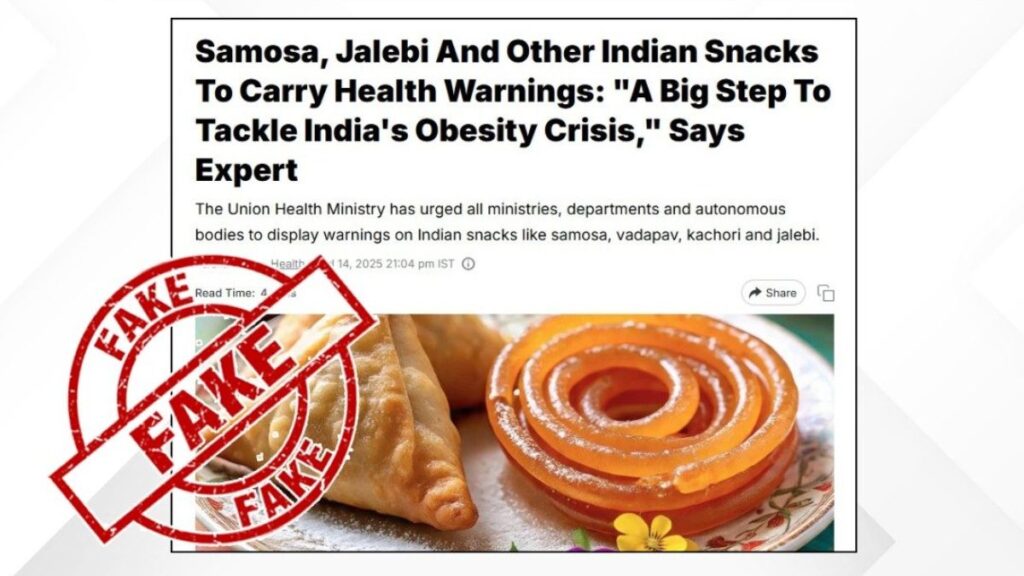A recent public health advisory from India’s Union Health Ministry has inadvertently sparked a national debate over traditional foods and cancer risks, following misleading reports that the government planned to impose cancer warning labels on popular Indian snacks like samosas, jalebis, and laddoos.
The controversy prompted a swift clarification from the Ministry and the Press Information Bureau (PIB), which labeled such claims as “baseless and misleading.” Officials emphasized that no directive has been issued to label traditional foods as carcinogenic, and that the advisory was part of a broader educational initiative on healthy eating.
Clarification Amid Media Confusion
The misunderstanding originated from a government push to display awareness posters in public spaces—such as canteens and cafeterias—encouraging citizens to moderate the consumption of high-sugar, high-fat, and ultra-processed foods. The campaign aims to promote preventive health measures without stigmatizing culturally significant foods.
“There is no move to place warning labels on Indian snacks,” the Health Ministry reiterated in a statement. “The effort is purely educational—focused on informed choices and lifestyle awareness.”
Health Experts Support the Message, Not the Misinterpretation
While the reports of warning labels were false, several oncologists and nutrition experts seized the moment to discuss the legitimate health risks posed by overconsumption of processed and fried foods.
Dr. Manish Singhal, Senior Consultant at Apollo Cancer Centre, pointed out that frequent consumption of snacks made with refined flour, trans fats, and deep-fried ingredients can increase abdominal fat and systemic inflammation—both of which are known to raise cancer risk. Studies have linked these dietary habits to at least 13 types of cancer, including breast and colorectal cancer.
“It’s not about villainizing food,” said Dr. Singhal. “It’s about how often, how much, and in what context we consume them.”
Focus on Moderation, Not Prohibition
Health officials and experts are aligned in promoting moderation over restriction. The campaign encourages citizens to adopt a balanced approach: enjoy traditional foods occasionally, but incorporate physical activity, portion control, and healthy dietary alternatives into daily life.
In an effort to make the message resonate, Dr. Singhal jokingly remarked, “If you enjoy a samosa, be sure to enjoy a ‘GYMosa’ too”—a nod to the importance of exercise in countering poor dietary habits.
Rethinking Public Health Messaging
The episode underscores a broader shift in public health strategy—from bans and warnings to nudges and education. Globally, health authorities are increasingly relying on visual cues, nutrition labeling, and public messaging to encourage behavioral change.
By redirecting the conversation toward cancer prevention and diet, the Union Health Ministry’s advisory—despite the media misfire—has opened the door to a more meaningful national dialogue on nutrition, tradition, and the path to healthier lifestyles.


